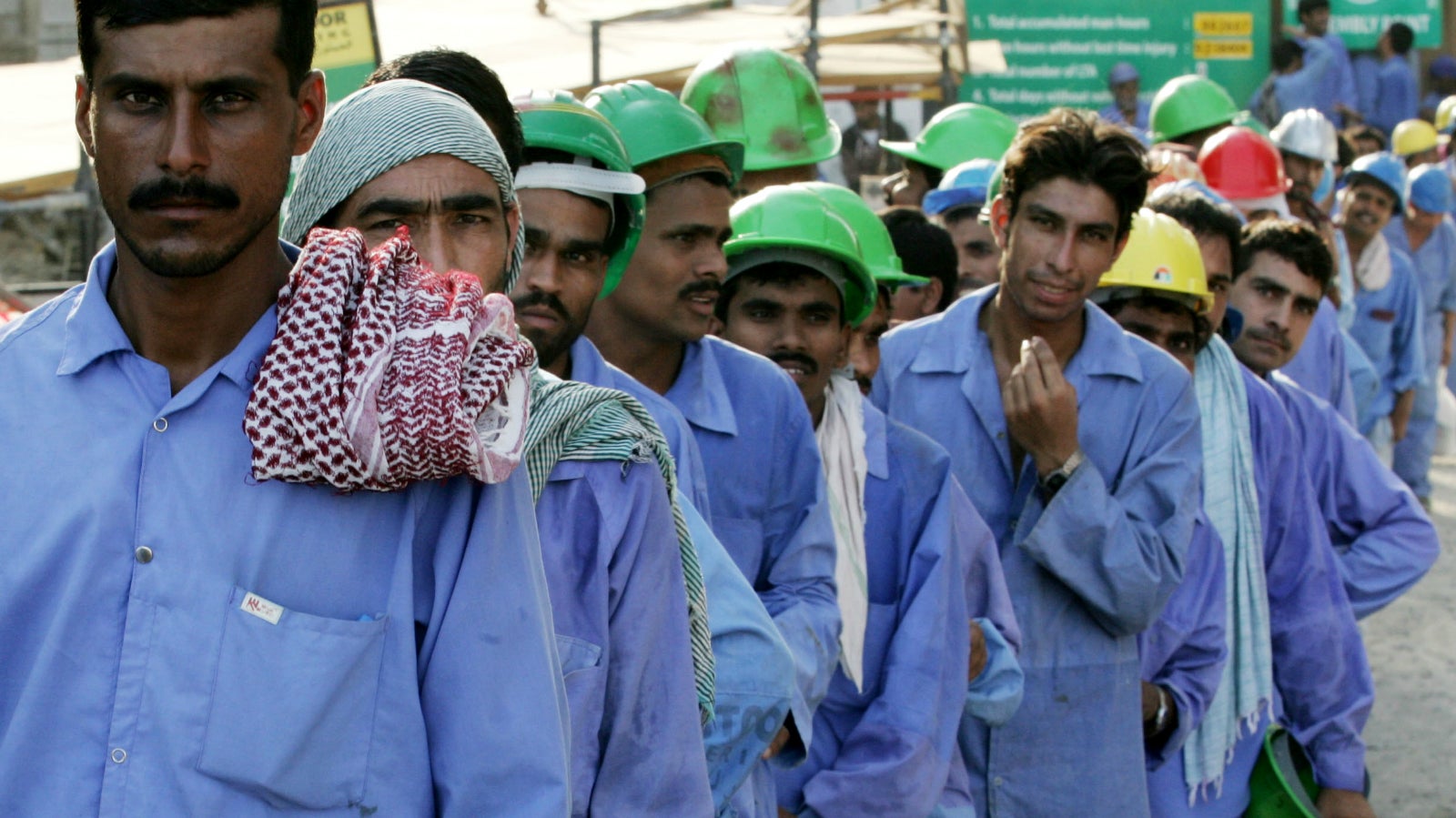Modi government scrambles to help 10,000 stranded and hungry Indians in Saudi Arabia
Some 10,000 Indians in Saudi Arabia have been battling hunger for the past few days after their employers refused to pay them wages, in some cases for up to seven months, according to news channel NDTV. Many others were laid off and don’t have enough money to travel back to India.


Some 10,000 Indians in Saudi Arabia have been battling hunger for the past few days after their employers refused to pay them wages, in some cases for up to seven months, according to news channel NDTV. Many others were laid off and don’t have enough money to travel back to India.
While the Narendra Modi administration has mobilised expatriate Indians in Saudi Arabia to deliver food, India is also reportedly considering airlifting such stranded persons this week. The government has also held talks with the Saudi authorities to ensure payment of pending salaries.
The Indian consulate in the Saudi Arabian city of Jeddah has already collected details of 2,500 Indians working in various labour camps ahead of a visit by VK Singh, India’s junior minister for external affairs sent to repatriate the labourers. The government is hoping that as word of the evacuation spreads, more Indians will provide their details so as to arrange for their exit visas.
India’s move is in response to a July 29 tweet—tagging the country’s foreign minister Sushma Swaraj—about the condition of such Indians in Jeddah.
The tweet had images of workers queuing up for food. These Indians worked for Saudi Oger, a construction company that employs more than 50,000 in that country.
Troubled lives
The lives of the six million Indian migrant workers in the Middle East have for long been under scrutiny.
Mostly in blue collar jobs such as construction labour, many have faced severe hardships like working outdoors in extreme temperatures and living under deplorable conditions—all for meagre pay. On some occasions, labourers have also been physically abused and their passports forcibly retained to restrict their movement.
Thousands have also lost their lives under such harsh conditions. In 2015 alone, some 5,900 Indians died in the Gulf countries with most deaths reported from Saudi Arabia (2,691) and the UAE (1,540). In Qatar, which is hosting the 2022 FIFA World Cup, some 500 Indians have died since 2012 after being forced to work in extreme heat.
Of the five million Indians employed in the region, nearly 3.5 million are in the UAE, while some 1.9 million are in Saudi Arabia, according to United Nations data on migrant movements.
Most Indian migrants are lured by promises of relatively higher pay in oil-rich countries such as Bahrain, Kuwait, Qatar, Oman, and Iraq, besides Saudi and the UAE. Every year, Indians working in the Gulf region send $30 billion to India, accounting for almost half of the country’s total remittances.
Since last year, however, Saudi Arabia has cut down on governmental spending following an economic crisis due to low crude oil prices. Local construction firms, which mostly rely on Indian migrant workers, too, have been under pressure, as a result.
The Kingdom has also introduced the Nitaqat law which makes it tougher to hire foreign labourers, and instead force companies to provide jobs to locals. The UAE and Qatar now plan to introduce similar laws.
That would mean an end to the Indian migrant dream that started in the late 1960s. But, for thousands, it is already a nightmare.